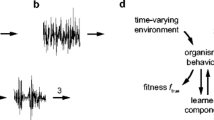Abstract
“Freedom” is a phenomenon in the natural world. This phenomenon—and indirectly the question of free will—is explored using a variety of systems-theoretic ideas. It is argued that freedom can emerge only in systems that are partially determined and partially random, and that freedom is a matter of degree. The paper considers types of freedom and their conditions of possibility in simple living systems and in complex living systems that have modeling (cognitive) subsystems. In simple living systems, types of freedom include independence from fixed materiality, internal rather than external determination, activeness that is unblocked and holistic, and the capacity to choose or alter environmental constraint. In complex living systems, there is freedom in satisfaction of lower level needs that allows higher potentials to be realized. Several types of freedom also manifest in the modeling subsystems of these complex systems: in the transcending of automatism in subjective experience, in reason as instrument for passion yet also in reason ruling over passion, in independence from informational colonization by the environment, and in mobility of attention. Considering the wide range of freedoms in simple and complex living systems allows a panoramic view of this diverse and important natural phenomenon.
Similar content being viewed by others
References
Ashby, W. R. (1956). An introduction to cybernetics. London: Chapman & Hall LTD.
Bateson, G. (1979). Mind and nature: A necessary unity. New York: Bantam Books.
Bennett, J. G. (1961). The dramatic universe: The foundations of moral philosophy (Vol. 2). London: Hodder & Stoughton.
Bennett, J. G. (1966). The dramatic universe: Man and his nature (Vol. 3). London: Hodder & Stoughton.
Dennett, D. (2003). Freedom evolves. New York: Viking.
Gell-Mann, M. (1994). The quark and the jaguar. Adventures in the simple and the complex. New York: W. H. Freeman & Co.
Hume, D. (1739/2007). Treatise on human nature. In D. F. Norton & M. J. Norton (Eds.), Treatise on human nature: A critical edition. Oxford: Clarendon Press.
Jonas, H. (1966). The phenomenon of life: Towards a philosophical biology. Evanston: Northwestern University Press.
Kahneman, D. (2011). Thinking, fast and slow. New York: Farrar, Straus and Giroux.
Kauffman, S. (1998). International conference on complex systems, Boston.
Kauffman, S., & Johnsen, S. (1991). Coevolution to the edge of chaos: Coupled fitness landscapes, poised states, and co-evolutionary avalanches. In C. G. Langton, C. Taylor, J. D. Farmer, & S. Rasmussen (Eds.), Artificial life II. SFI studies in the sciences of complexity (Vol. 10). Redwood City: Addison-Wesley.
Krippendorff, K. (1986). Information theory: Structural models for qualitative data. Beverly Hills: Sage.
Langton, C. (1991). Life at the edge of chaos. In C. G. Langton, C. Taylor, J. D. Farmer, & S. Rasmussen (Eds.), artificial life II. SFI studies in the sciences of complexity. Redwood City: Addison-Wesley.
Maslow, A. H. (1943). A theory of human motivation. Psychological Review, 50(4), 370–396.
Peirce, C. S. (1991). Peirce on signs: Writings on semiotic. In H. James (Ed.). Chapel Hill: University of North Carolina Press.
Rosen, R. (1991). Life itself: A comprehensive inquiry into the nature, origin, and fabrication of life. New York: Columbia University Press.
Schultz, D., Wolynes, P. G., Ben Jacob, E., & Onuchic, J. N. (2009). Deciding fate in adverse times: sporulation and competence in bacillus subtilis. Proceedings of the National Academy of Science, 106, 21027–21034.
Tononi, G. (2008). Consciousness as integrated information: A provisional manifesto. The Biological Bulletin, 215, 216–242.
von Neumann, J., & Morgenstern, O. (1944). Theory of games and economic behavior. New York: Wiley.
Wittgenstein, L. (1953). Philosophical investigations. London: Blackwell Publishing.
Zadeh, L. A. (1965). Fuzzy sets. Information and Control, 8, 338–353.
Zwick, M. (1978). Quantum measurement and Gödel’s proof. Speculations in Science and Technology, 1(2). http://www.sysc.pdx.edu/download/papers/godel1.pdf
Zwick, M. (2007). Spinoza and Gödel: Causa Sui and undecidable truth. North American Spinoza Society Monograph, 13, 46–52. http://www.pdx.edu/sites/www.pdx.edu.sysc/files/sysc_zwick_spinoza_godel.pdf
Acknowledgments
The author appreciates valuable comments from Mark Bedau, and also thanks the two anonymous reviewers who grasped what this paper tries to articulate yet helpfully insisted on greater clarity.
Author information
Authors and Affiliations
Corresponding author
Rights and permissions
About this article
Cite this article
Zwick, M. Freedom as a Natural Phenomenon. Found Sci 22, 1–10 (2017). https://doi.org/10.1007/s10699-015-9433-z
Published:
Issue Date:
DOI: https://doi.org/10.1007/s10699-015-9433-z



